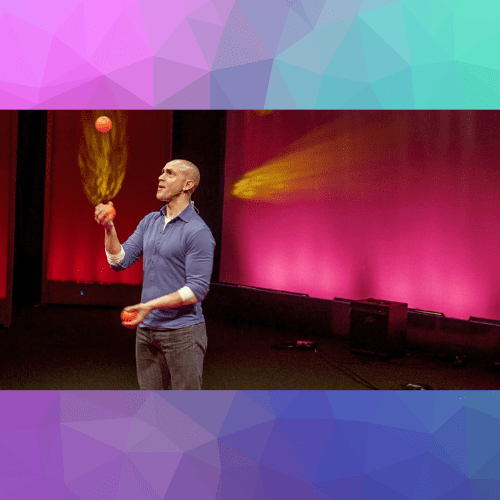
When was the first time you heard Andy Puddicombe’s voice?
With his delightfully British last name, Andy Puddicombe’s lulling voice leads tens of thousands through meditative practices every day on the app he co-created.
The first time I heard Andy Puddicombe’s voice, I was on a treadmill. To get back into cardio, I had downloaded the Nike Run Club app. It featured a Headspace series for running. Part of the reason I was trying to start a cardio routine was to destress, so it seemed perfect. It was a very enjoyable series, and while it did not get me to download the Headspace app, it was still a nice twist to make running more enjoyable.
While Andy Puddicombe was 18 years old and pursuing a degree in sports science, he was standing in a crowd when a drunk driver drove through the group. The incident killed two and seriously injured 12. Shortly after, Puddicombe dropped out of school and moved to the Himalayas to enter training to become a Buddhist monk. He traveled throughout India and Russia finishing his commitment to being a monk. Afterward, Puddicombe went on to study circus arts. In his TED Talk, Puddicombe uses juggles three balls while he describes various mental states.
Years later Andy Puddicombe met his future business partner, Rich Pierson while Puddicombe was working at a meditation clinic in London. Pierson had entered the clinic suffering burnout from as advertising executive in the London “Madison Avenue” culture. This encounter was the beginning of Headspace.
What Does Headspace Work For?
Headspace is big on the “ten minutes a day”. In contrast to the Calm App, which markets “just take a break” more than “build a meditation practice” ten minutes a day might not be a very realistic concept of meditation. It may be a great starting point for a busy person and it’s packaged nicely for the Western market looking for secular spirituality.
Those who enjoy Headspace attribute to it that it got them to try meditation for the first time. Skeptical reviews tend to be those who have dabbled in meditation before. In a Business Insider review, the app tends to work better if you’ve tried meditation before.
Compared to the Calm App which is borders on fraudulent marketing, the Headspace App is more like “the movie is never as good as the book” for meditation. It is positioned at the intersection of “mindfulness + capitalism” as part of a bigger trend of whitewashing and commodifying Eastern spirituality.
Headspace markets to a Western audience to teach meditation, but in making it more appealing to novices it also perpetuates how much Western culture doesn’t know about the practices it’s borrowing. Just as a basic guideline, yoga is mediation; meditation is yoga. So the Western image of the two being different things and then the marketing of isolated meditation just perpetuates confusion.


